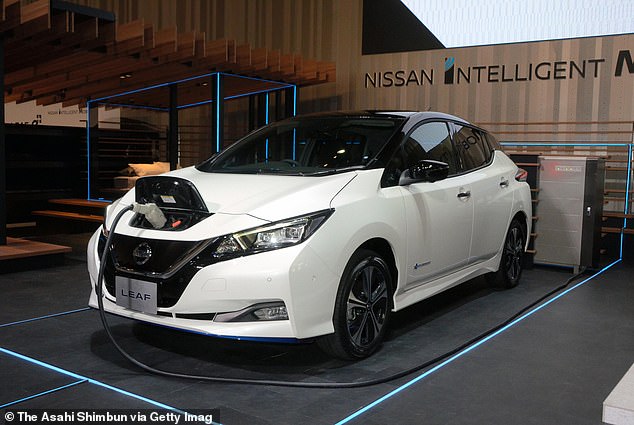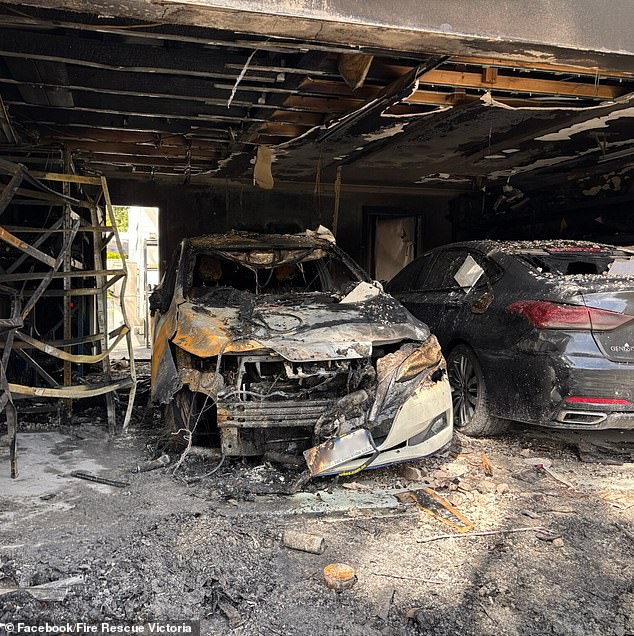An electric car caught fire after its owner tried to recharge the battery with a dodgy cable.
Fire Rescue Victoria urged electric vehicle owners to use appropriate chargers after a Nissan Leaf e+ burst into flames at 9.11am in Glen Waverley, Melbourne, on September 24.
Five rescue crews arrived at the home and safely evacuated two adults and a dog from the home before extinguishing the flames.
Crews used breathing apparatus to fight the fire and the scene was considered under control five minutes after arrival.
The fire burned the interior of a two-car garage, leaving only the hull of the Nissan intact, and damaged the owner’s Genesis luxury sedan that was parked next to it.
The Fire Investigation Unit determined that the fire was caused by a non-original charger that was connected to a household outlet via a travel adapter.
Nissan’s Australian website warns that aftermarket cables can be used in its cars, but recommends owners buy theirs from a certified Nissan electric vehicle dealer.
The automaker does not include a cable designed for home charging via a home outlet with its Leaf e+.
Fire Rescue Victoria urged electric vehicle (EV) owners to use appropriate chargers after a Nissan Leaf e+ burst into flames at 9.11am in Glen Waverley, Melbourne, on September 24.
Fire Rescue Victoria warned electric vehicle owners on social media to take extra care with the equipment they would use when charging the vehicle.
“FRV would like to remind the community of the risks of using incompatible charging equipment following an electric vehicle fire,” FRV wrote.
‘To minimize the risk of fire caused by a rechargeable lithium-ion battery, FRV recommends purchasing products from a trusted supplier and following the manufacturer’s instructions, using only chargers and cables originally supplied with the device (and) verifying that the chargers have the Regulatory Compliance Mark, to demonstrate that they comply with relevant Australian standards.’
Original EV chargers can cost up to $500, while third-party chargers can list for as little as $120 on online marketplaces.
The danger of aftermarket chargers is their difference in power output, which can cause fires if a cable provides incorrect power delivery to an electric vehicle.
Electric vehicles, such as bicycles and electric scooters, contain rechargeable lithium-ion batteries, which FVR says are “more volatile than traditional batteries.”
“Only use chargers and cables originally supplied with that device,” the FRV website warns.
“Using chargers with incorrect power supply (voltage and current) can cause damage to the battery or overheating which can lead to fires.”

The Fire Investigation Unit determined the charge was caused by a spare charger that was plugged into a household outlet via a travel adapter (pictured)

